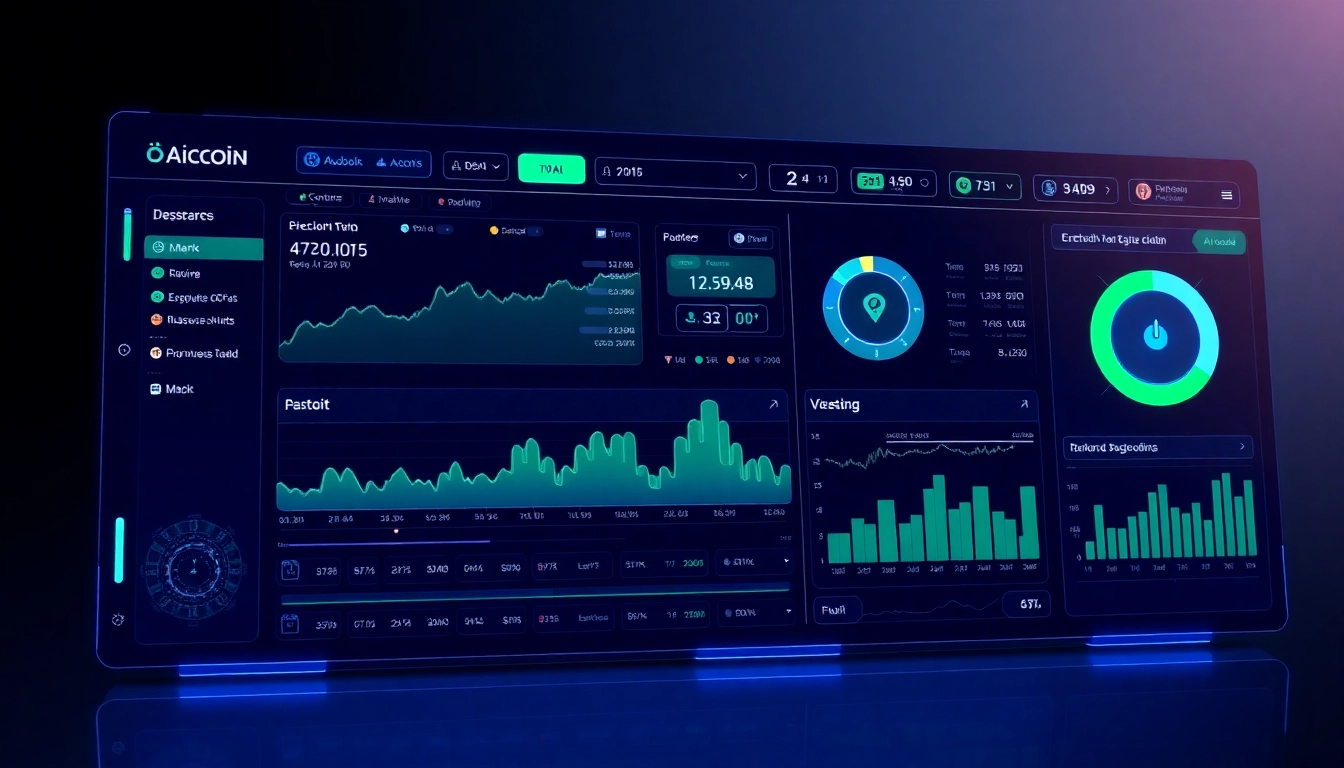Understanding the Landscape of Alternative Investments
In today’s dynamic financial environment, staying ahead requires investors and advisors to keep a close eye on the latest developments within the alternative investment sector. These investments—ranging from hedge funds and private equity to real estate and infrastructure—offer diversification benefits and potential for higher returns compared to traditional assets. As the landscape continues to evolve, accessing the Latest Alternative Investment News becomes essential for making informed decisions that align with strategic goals.
Types and Classifications of Alternative Investments
Alternative investments are diverse and often classified based on their underlying assets and investment strategies. Understanding these categories is foundational to evaluating opportunities effectively:
- Hedge Funds: Pooled investment funds employing a variety of strategies—including long/short equity, event-driven, macro, and quantitative—to generate absolute returns irrespective of market directions.
- Private Equity: Investments in private companies or buyouts of public firms, aiming for significant value creation through active management and restructuring.
- Real Estate: Direct or indirect holdings in commercial, residential, or industrial properties, offering income through rent and potential appreciation.
- Infrastructure: Capital in essential public works—roads, bridges, utilities—that often provide stable cash flows and inflation protections.
- Private Credit: Lending to private entities outside traditional banking channels, such as direct loans or mezzanine debt, typically with higher returns for higher risk.
Each category carries unique risk-return profiles, liquidity considerations, and regulatory nuances, making thorough due diligence crucial before allocation.
Current Market Trends in Alternative Investments
Recent shifts in market dynamics have accelerated the adoption and innovation within the alternative space. Notably:
- Growth of Private Credit: As banks tighten lending standards, private credit funds are filling the gap, providing vital financing to middle-market companies.
- Sustainable and Impact Investing: ESG (Environmental, Social, Governance) criteria are increasingly embedded into alternative strategies, aligning capital with social responsibility.
- Technology-Driven Strategies: AI and data analytics are transforming hedge fund and private equity operations, improving decision-making and operational efficiencies.
- Global Allocation: Investors are diversifying geographically, tapping into emerging markets’ infrastructure projects and real estate development.
These trends reflect a move towards more sophisticated, liquid, and impact-oriented alternatives—adapting to both investor demands and macroeconomic shifts.
Key Factors Influencing the Investment Environment
Several macroeconomic and geopolitical factors shape the alternative investment landscape:
- Interest Rates and Inflation: Low-interest environments have driven capital into alternatives as traditional fixed-income yields diminish.
- Regulatory Changes: Evolving policies impact fund structures, reporting standards, and compliance, necessitating vigilant monitoring.
- Global Political Stability: Geopolitical tensions affect cross-border investments, especially in emerging markets and infrastructure projects.
- Technological Innovations: Disruptive tech enhances due diligence, operational efficiency, and access to new asset classes.
Understanding these factors can help investors anticipate market shifts and adapt strategies proactively.
How to Stay Updated with the Latest Alternative Investment News
Top Resources for Reliable Market News
To maintain an edge, leveraging reputable sources is essential. Key platforms include:
- InvestmentNews: Offers comprehensive coverage on hedge funds, private equity, and real estate, tailored to financial advisors. Visit InvestmentNews for in-depth analysis.
- AltsWire: A daily newsletter providing up-to-date news on private funds, REITs, opportunity zones, and more (AltsWire).
- Alternatives Watch: Breaking news and detailed reports covering hedge funds, private equity, and infrastructure (Alternatives Watch).
- DailyAlts: A platform that delivers daily top stories on various alternative assets, including technological innovations (DailyAlts).
- Industry Podcasts and Reports: Podcasts from organizations like the Alternative Investment Management Association illuminate industry insights.
Incorporating these sources into your routine ensures access to timely, accurate, and actionable information.
Utilizing News for Portfolio Optimization
Market news is more than just information—it’s a strategic tool. Investors should:
- Identify Opportunities: Detect emerging asset classes or regions with growth potential.
- Assess Risks: Understand macroeconomic factors influencing asset performance, such as regulatory changes or geopolitical events.
- Adjust Allocations: Rebalance portfolios based on the latest market developments to optimize risk-adjusted returns.
For example, news reporting on infrastructure spending in emerging markets can signal opportunities in local projects or funds.
Tools and Technologies for Real-Time Investment Alerts
Modern investors leverage advanced tools to receive instant updates:
- Market Analytics Platforms: Tools like Bloomberg Terminal or FactSet provide real-time news and data streams.
- News Aggregators and Alerts: Customized alerts via platforms like Google Alerts, TradingView, or proprietary financial apps.
- AI and Machine Learning: Algorithms analyzing vast data sets to predict market movements and identify hot topics.
Integrating these tools into daily workflows facilitates proactive decision-making, ensuring investments are aligned with the latest market signals.
Evaluating News Stories: What to Look For
Identifying Reliable and Actionable Information
Not all news carries equal weight. Focus on:
- Source Credibility: Prefer established outlets with transparent reporting standards.
- Data Support: Look for stories backed by verifiable data, statistics, or official statements.
- Expert Opinions: Consider insights from industry leaders or recognized analysts.
Critical evaluation prevents reaction to sensationalism and supports strategic move execution.
Understanding Implications of Market Changes
After validating a news story, assess its impact:
- Will this event influence asset prices or liquidity?
- Does it suggest regulatory shifts or macroeconomic trends?
- How does it fit within your existing portfolio framework?
Integrating this understanding helps in timing decisions and managing risk effectively.
Case Studies: Successful Investment Decisions Based on News
Consider a private equity firm that identified a regional infrastructure initiative covered extensively in the news. By anticipating government funding and regulatory support, the firm sourced promising projects early, leading to substantial value creation. Similarly, hedge funds leveraging news on commodity supply disruptions capitalized on short-term trading opportunities.
Best Practices for Integrating News into Investment Strategies
Developing a Routine for Market Monitoring
Consistent engagement is key. Establish daily or weekly review sessions, subscribe to online alerts, and participate in industry webinars. Employing dashboard tools consolidates news feeds into one interface for efficient analysis.
Balancing News Analysis with Fundamental Research
While real-time news offers immediate insights, deep fundamental research ensures understanding of underlying asset value. Use news updates to inform hypotheses tested through company financials, valuation models, and sector analysis.
Risk Management and Contingency Planning
News-driven strategies must include safeguards. Set predefined thresholds for action, diversify across asset classes, and maintain liquidity buffers to adapt swiftly to market shocks triggered by breaking news.
Future Outlook for Alternative Investments and News Cycles
Emerging Trends to Watch
The future of alternative investments is intertwined with technological advancements and macroeconomic shifts. Expect increased integration of AI, growth in sustainable investing, and continued globalization of asset opportunities.
Impact of Global Events on Alternative Investment News
Global events—such as geopolitical conflicts, climate change policies, and pandemics—will continue to shape news cycles. Investors must enhance their analytical frameworks to interpret these signals effectively.
Preparing for Market Shifts and New Opportunities
Proactive strategizing involves scenario planning, maintaining flexible allocations, and staying informed through diversified reliable sources. Being prepared enables capitalizing on emerging opportunities as they unfold.



